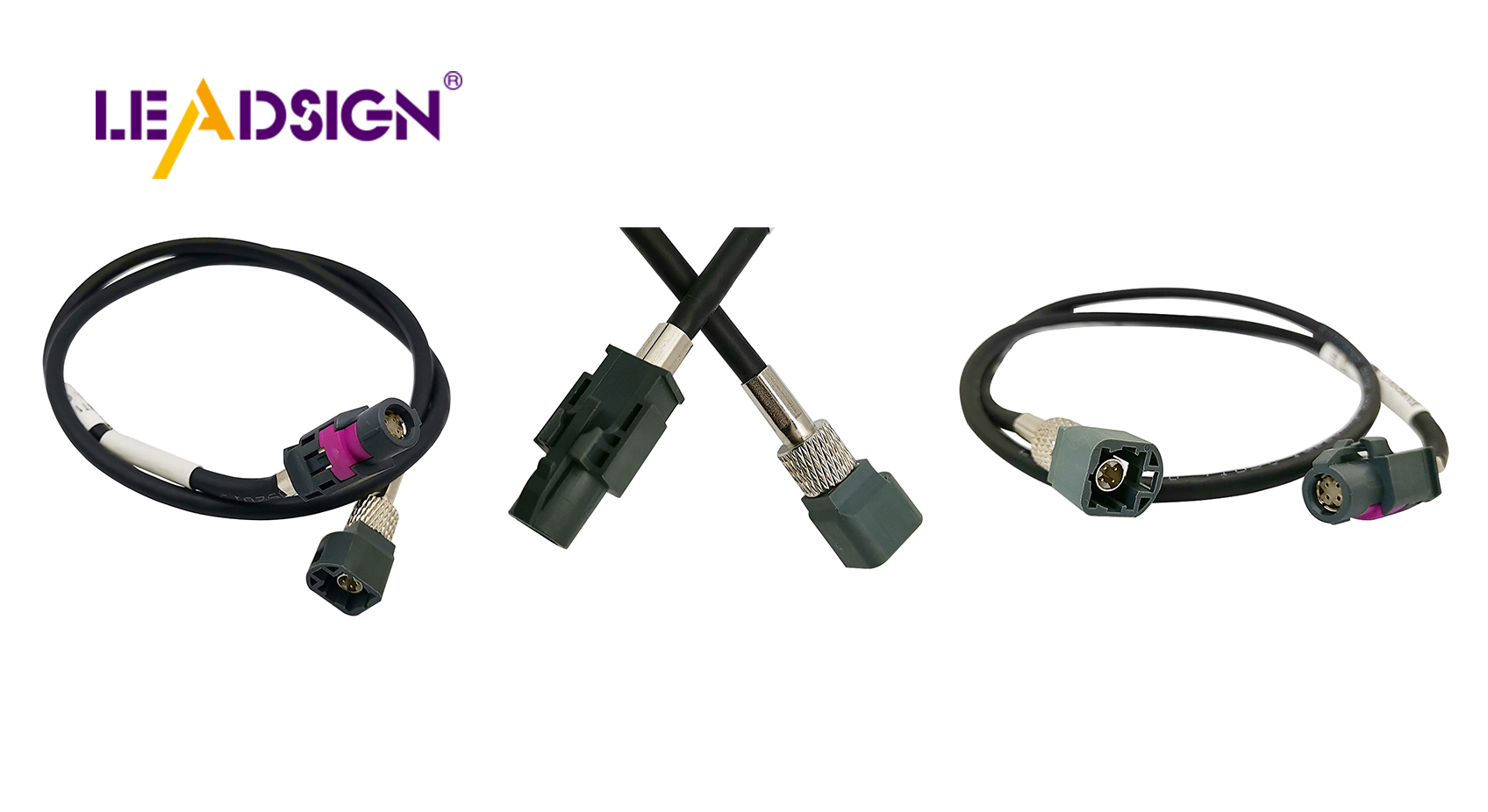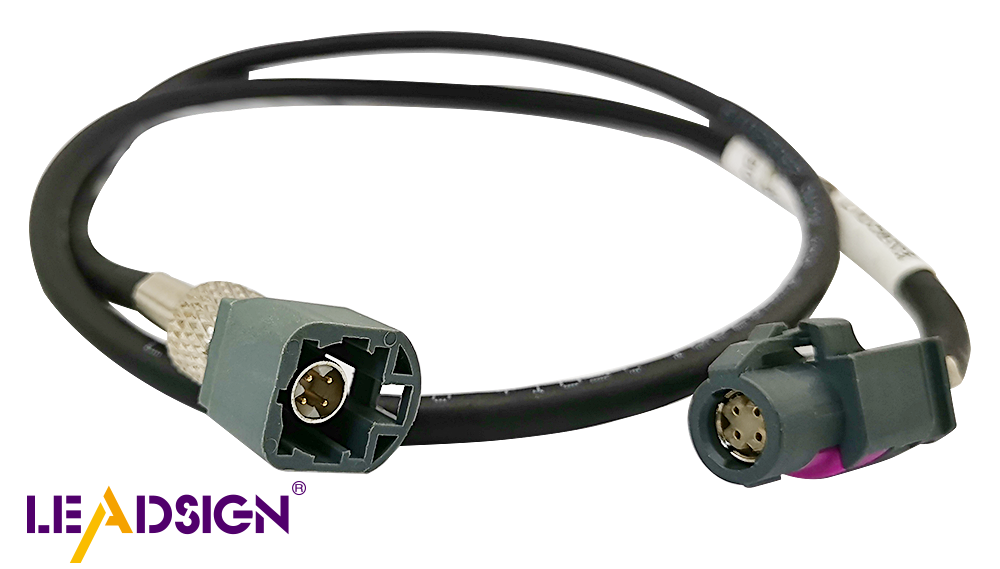Selecting the Best Types of Wire Connectors for Automotive Use

Wire connectors play a vital role in automotive applications. They ensure your vehicle's electrical systems function smoothly and safely. With up to 700 connectors and over 3,000 wires in modern vehicles, choosing the right type is crucial. Automotive wiring connector types must handle high voltage and prevent malfunctions. The market for these connectors is growing, valued at $17.047 billion in 2021, with a projected growth rate of 5.8% per year. This highlights their importance in enhancing vehicle efficiency and safety.
Understanding Wire Connectors
Definition and Purpose
What are wire connectors?
Wire connectors are essential components in automotive systems. They join electrical wires, ensuring a stable and secure connection. You find them in various parts of a vehicle, from the engine to the infotainment system. These connectors help maintain the integrity of electrical circuits, preventing disruptions.
Why are they essential in automotive systems?
In automotive systems, wire connectors play a crucial role. They ensure compatibility with the vehicle's original electrical setup. By providing reliable connections, they enhance the car's performance and safety. You rely on them to withstand extreme conditions, such as heat and moisture, which are common in automotive environments.
Basic Components of Wire Connectors
Conductive elements
Conductive elements form the core of wire connectors. They allow electricity to flow between wires. You often see materials like copper or aluminum used for their excellent conductivity. These elements must handle the electrical load without overheating, ensuring efficiency and safety.
Insulation materials
Insulation materials protect the conductive elements. They prevent short circuits and protect against environmental factors like moisture and temperature changes. You might find materials like plastic or rubber used for insulation. These materials ensure that the connectors remain safe and functional over time.
Key Insight: Choosing the right wire connectors involves understanding their components and functions. This knowledge helps you select connectors that meet your vehicle's specific needs, ensuring reliability and performance.
Types of Wire Connectors for Automotive Use

Choosing the right automotive wiring connector types is crucial for ensuring your vehicle's electrical systems function efficiently. Let's explore some common types and their applications.
Crimp Connectors
Crimp connectors are popular in automotive systems due to their reliability and ease of use.
Types of Crimp Connectors
Butt Connectors: These join two wires end-to-end. You often use them for repairs or extensions.
Ring Terminals: These create a secure connection to a stud or screw. They are ideal for grounding applications.
Spade Terminals: These allow easy connection and disconnection. You find them in situations where frequent maintenance is needed.
Applications in Automotive Systems
Crimp connectors excel in environments where vibration and movement occur. They provide a strong mechanical bond, ensuring wires stay connected. You see them in engine compartments and other high-vibration areas.
Solder Connectors
Solder connectors offer a different approach by using solder to create a permanent bond.
Advantages and Disadvantages
Advantages: Solder connectors provide excellent conductivity and a strong, permanent connection. They resist corrosion and are less likely to loosen over time.
Disadvantages: Installation requires more skill and time. They are not as flexible for repairs or modifications.
Common Uses in Vehicles
You often use solder connectors in critical systems where reliability is paramount. They are common in sensor connections and other areas where a stable connection is essential.
Push-In Connectors
Push-in connectors offer a quick and easy solution for connecting wires without tools.
How They Work
Push-in connectors use a spring mechanism to hold wires in place. You simply insert the wire, and the connector grips it securely.
Situations Where They Are Most Effective
These connectors are perfect for tight spaces or when you need to make quick connections. They are useful in dashboard installations and other confined areas.
Key Insight: Understanding the different automotive wiring connector types helps you choose the best option for your vehicle's needs. Each type offers unique benefits and is suited for specific applications, ensuring optimal performance and safety.
Factors to Consider When Selecting Wire Connectors
When choosing automotive wiring connector types, you must consider several factors to ensure optimal performance and safety. These factors help you select connectors that meet your vehicle's specific needs.
Electrical Requirements
Current and Voltage Ratings
You need to ensure that the connectors can handle the electrical load of your vehicle. Each connector type has specific current and voltage ratings. Selecting connectors with appropriate ratings prevents overheating and potential failures. For instance, OEM Automotive Connectors are designed to provide a dependable electrical connection, reducing the risk of electrical failure.
Compatibility with Automotive Systems
Compatibility with your vehicle's electrical system is crucial. You should choose connectors that align with the original setup of your car. This ensures seamless integration and reliable performance. Different automotive wiring connector types offer varying levels of compatibility with automotive systems, so understanding your vehicle's requirements is essential.
Environmental Conditions
Temperature and Moisture Resistance
Automotive environments often expose connectors to extreme temperatures and moisture. You must select connectors that can withstand these conditions. Car Connectors are built to handle tough conditions, including heat and moisture. This resistance ensures that the connectors remain functional and safe over time.
Vibration and Impact Resistance
Vehicles experience constant vibrations and impacts. You should choose connectors that can endure these stresses without compromising the connection. OEM Automotive Connectors are made from materials that resist vibration, ensuring a stable and secure connection even in challenging conditions.
Installation and Maintenance
Ease of Installation
The ease of installation is an important consideration. You want connectors that are simple to install, saving time and effort. Some automotive wiring connector types, like push-in connectors, offer quick and tool-free installation, making them ideal for tight spaces or quick repairs.
Long-term Maintenance Needs
Consider the long-term maintenance needs of the connectors. You should select connectors that require minimal maintenance while providing reliable performance. High-quality connectors reduce the need for frequent repairs or replacements, ensuring long-term efficiency and safety.
Key Insight: By considering these factors, you can choose the best automotive wiring connector types for your vehicle. This ensures that your vehicle's electrical systems function efficiently and safely, providing peace of mind on the road.
Recommendations for Choosing the Best Wire Connectors
Choosing the right automotive wiring connector types requires careful consideration. You need to assess your vehicle's specific needs and consult industry standards to ensure safety and performance.
Assessing Specific Needs
Evaluating the vehicle's electrical system
Start by evaluating your vehicle's electrical system. Identify the components that require connections and understand their electrical demands. Consider the current and voltage ratings necessary for each part. This evaluation helps you select automotive wiring connector types that can handle the electrical load without overheating or failing.
Identifying critical performance factors
Next, identify critical performance factors. Determine the environmental conditions your vehicle faces, such as temperature extremes and moisture levels. Consider the vibration and impact resistance needed for your connectors. By understanding these factors, you can choose automotive wiring connector types that offer durability and reliability in challenging conditions.
Consulting Industry Standards
Relevant automotive standards
Consult relevant automotive standards to guide your selection process. Standards like the LV214 Automotive Wire Harness Standard ensure that connectors meet quality and safety requirements. These standards address the ability of terminals to be recognized by crimp force monitors, ensuring quality crimping in automotive wire harnesses. Compliance with these standards guarantees that your chosen connectors align with industry expectations.
Ensuring compliance and safety
Ensuring compliance and safety is crucial. Choose automotive wiring connector types that adhere to standards set by organizations like the US Council for Auto Research (USCAR). These standards cover safety, electrical wiring, electronics, and energy storage. By selecting connectors that meet these criteria, you enhance the safety and performance of your vehicle's electrical systems.
Key Insight: By assessing your vehicle's specific needs and consulting industry standards, you can make informed decisions when selecting automotive wiring connector types. This approach ensures that your vehicle's electrical systems function efficiently and safely, providing peace of mind on the road.
Selecting the right wire connectors is crucial for your vehicle's safety and efficiency. By understanding your specific needs and consulting industry standards, you make informed decisions that enhance performance. Reliable manufacturers like Eigen emphasize quality and innovation, ensuring you receive top-notch products. For complex installations, consulting professionals can provide additional assurance. This approach not only safeguards your vehicle but also boosts confidence in its electrical systems.
See Also
Significance of HSD Connectors in Automotive Sector
Benefits of HFM Connectors in Auto Sector
Significance of FAKRA Connectors in Auto Uses

